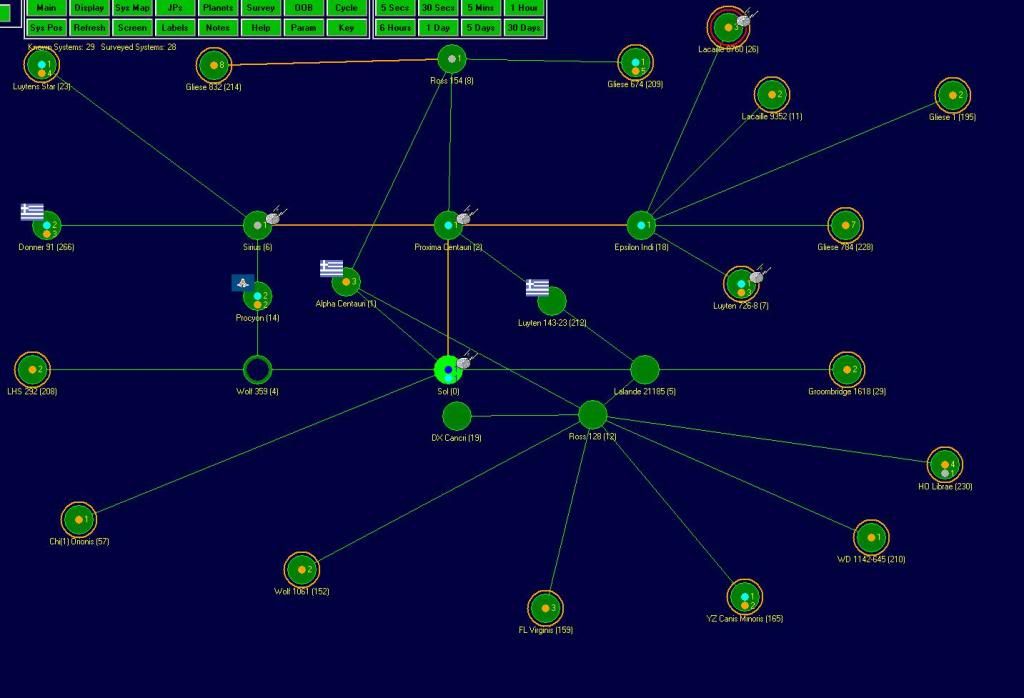If this is a real stars game, then the local chance and local spread don't apply. Those are only used for random games. In a real stars game, systems are linked based on their proximity in real space, which is based on their celestial coordinates in reality.
Steve
Steve, could you make a change to the new game setup that disables the local chance and local spread if you choose real stars? I never realized what you just said was the case, and never would've guessed it, either, and having a graphical representation may helps those who come after me. 
That is already how it works. Local chance and local spread are disabled in a real stars game. The local chance and local spread are an abstract way of generating star locations in a random galaxy. In a real stars game, the exact location of every star is already known. The method used is different though.
When a jump point exploration takes place in a real stars game, the program chooses to generate a new system (95% chance) or link to an existing system (5%). In the former case, there is a 90% chance of a close link and a 10% chance of a distant link. For a close link, the program creates a list of all possible stars in ascending order of distance and then checks each one in turn. There is a 20% chance that the program will stop and select a particular system. For a distant link, the program does the same but with only a 4% chance of choosing a particular system. When linking to a known system, the program creates a list of existing systems in ascending order of distance and uses a 20% chance for each one.
The reason I chose this particular method, rather than a simpler method of simply arranging all system in ascending order of distance regardless of whether they have yet been generated and just picking one, is that the simpler method could easily lead to a tangled mass of internal connections. One option might be to allow user parameters for the chance of linking to an existing system and also for the chances of close and distant links.
Steve




